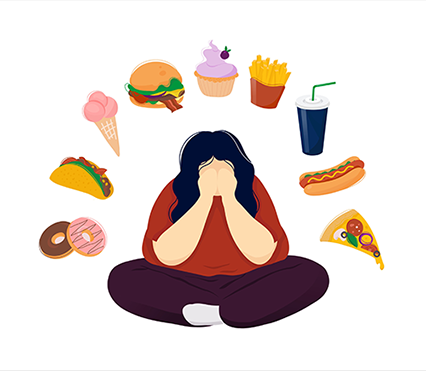Ultra-processed food intake as an effect modifier in the association between depression and diabetes in Brazil: A cross-sectional study
Recent research has linked ultra-processed food (UPF) consumption to both depression and diabetes, but it’s unclear how UPFs might affect the relationship between the two. This study by Sun et al. (2025) explored whether ultra-processed food (UPF) intake influences the link between depression and diabetes in Brazilian adults. Using data from over 87,000 participants (aged 18–92) from the 2019 Brazilian National Health Survey, researchers analyzed self-reported diagnoses of depression and diabetes, dietary habits, and various demographic and socioeconomic factors. Two different classification methods (UPF1 and UPF2) were used to distinguish between high and low ultra-processed food (UPF0 consumption levels. The study discovered a clear correlation between diabetes and depression, which was more pronounced in those who consumed UPF often. Even after adjusting for demographic variables and dietary factors like meat and vegetable intake, people with depression who consumed large amounts of UPFs had a higher risk of diabetes. Age-specific analysis revealed that this association was especially strong in younger adults, with odds ratios rising sharply in this group. In conclusion, the findings suggest that high UPF consumption may intensify the connection between depression and diabetes, particularly among younger people. Future studies are needed to confirm causality and explore biological mechanisms, as well as whether dietary improvements can reduce the co-occurrence of these two conditions. [NPID: Brazilian population, depression, food choice, nutritional epidemiology, psychiatric comorbidity]
Year: 2025
 Navigation
Navigation







